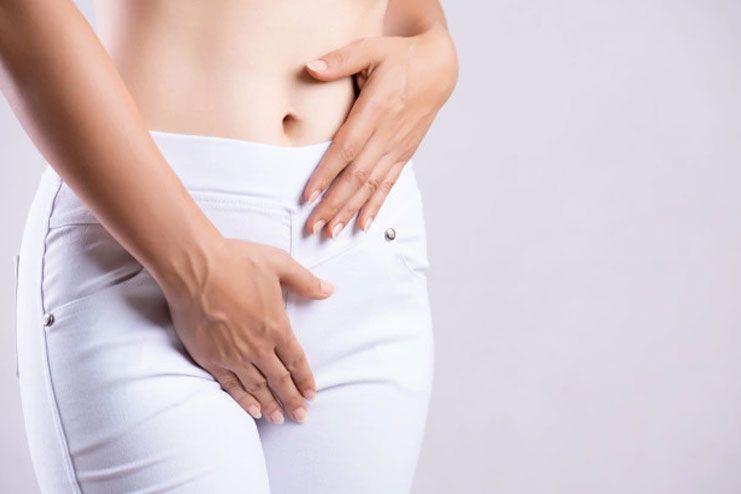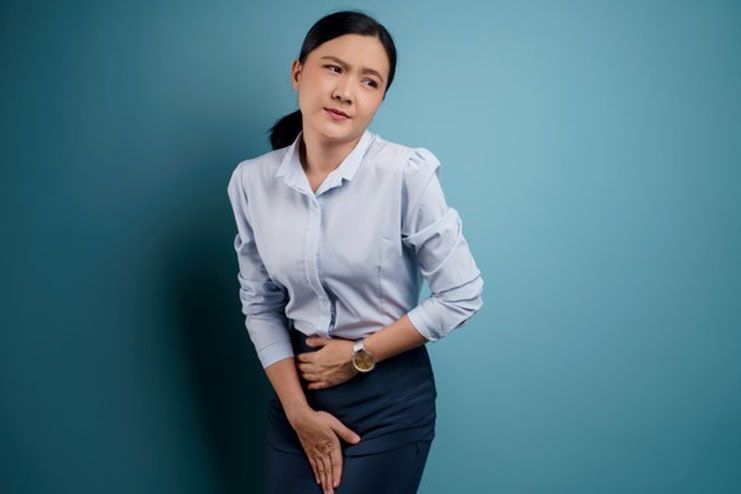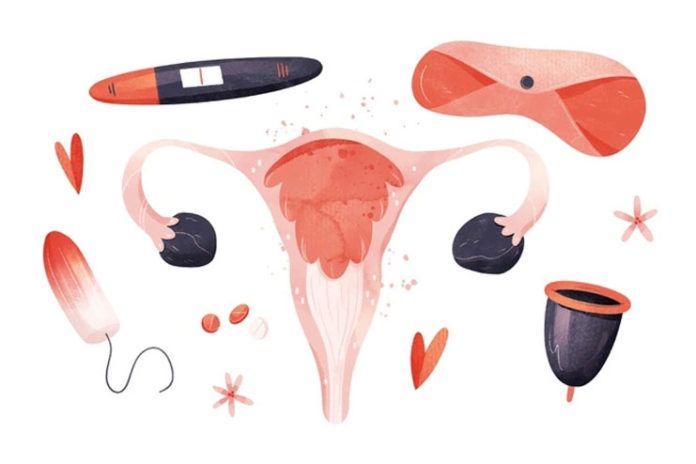Affiliate Disclaimer
Some links in this article are affiliate links. We may earn a small commission if you make a purchase through these links, at no extra cost to you. We only recommend products we find useful to our readersVaginal irritation and inflammation is a repeated condition in females. If there is excess itchiness or irritation in vagaina then dont have panicking misconceptions like a critical disease rather look for the home remedies. Vulva irritation is treatable at home with the natural solutions. Prior to that knowing the causes of vulva irritation can prevent it.
Most of the time, you just ignore the vaginal irritation while waiting for it to go by itself. It is good if it happens as you expect but not all are the favourable times. Vulva irritation or infection may need a medical check up or your action to get rid of it. So, knowing the severity of the condition is more important before the way of treatment you choose for it.
Explain vulva irritation
As we said vulva irritation is not a disease but is an inflammation that causes itching and irritation that affects the outside openings of the female genital- vulva. There are various reasons that cause this kind of inflammation and it is possible to treat at home when the effect is mild. If there is a persistent irritation then it is advised to see a doctor.
Top 10 Causes for Vulva Irritation

1. Folliculitis
There is a possibility that inflamed or infected vagainal hair irritates the area. The irritation due to such hair is known as folliculitis. It can be caused anywhere the hair grows. Most of the time, it is caused by the touch of a razor, waxing and applying certain hair removal creams. So, you must choose a safe way to remove your hair to prevent vulva infection.
2. Contact dermatitis
This is a condition when there is skin irritation with application of certain products. Not only in the vaginal area but can be a cause of any area of the skin. When you accidentally or intentionally apply products which contain chemicals, irritants on skin, it may disturb your skin. Automatically, it results in irritation, swelling, redness, tenderness and rashes. As vulva is a sensitive area, it can be one of the common causes for irritation.
3. Yeast infection
Vagina is an area where fungus, bad bacteria get accumulated easily. But when there is excess growth of fungus candida then it results in yeast function. Vulva irritation could be an early sign or late sign of yeast infection. If the symptoms are getting severe, you must meet your doctor without any delay. The common symptoms of this kind of infection are- itching, swelling, pain during sex, rash and redness, burning sensation.
4. Bacterial vaginosis
Vagina is an area that ideally must have a balance of good and bad bacteria. But due to some reasons, bad bacteria overgrow and cause this condition. When you are affected with this infection, the symptoms would be foul smell, changed color discharge, pain in the area. Treating it with medicines prescribed by your doctor is a safer step rather than the home treatment or waiting for it to recover by itself.
5. Sexually transmitted infection
It is very common that sexual intercouse causes infection due to various risk factors and causes. This infection is trasmitted through oral, vagainal and anal sex. Some of the common symptoms of STI are painful urination, painful intercoruse, itchiness, rash, excessive discharge. You may experience pain in the lower abdomen and bumps over genital area.
There are common STIs that include trichomoniasis, gonorrhea, chlamydia. These infections result in symptoms like vaginal infection, vulva irritation.
6. Psoriasis
This is a condition that occurs due to rapid buildup of skin cells. Again psoriasis comes in various types which may involve genital area and inverse area. Genital psoriasis affects vulva and inverse psoriasis may infect groins, thighs and buttocks. The common symptoms of psoriasis are red patches, cracked skin that results in bleeding, itchiness and burning sensation. If you are suspecting that vulva irritation is caused due to psoriasis then see a dermatologist to treat it earlier.
7. Lichen sclerosus
This is a condition that forms shiny and white skin on the affected area. It can happen anywhere on the body but gential and anal regions are more vulvnerable to this condition. It is when the immune system wrongly attacks the skin cells or mucous membranes. This is not a life threatening disease or condition but if the symptoms are persisting then you must consult your doctor for the treatment.
8. Menopause
One of the causes of vulva irritation is due to perimenopause which comes prior to menopause. It is a natural occurring stage for women in their early to late 40s. During this stage, estrogen level drops down and it causes thinning, less flexibility of vagina which results in dryness and irritation. The skin around vagina becomes vulnerable to irritation with products, sexual activity.
9. Hormonal changes
There are numerous reasons that fluctuate the hormonal levels. Before the menstrual cycle, the level of estrogen hormone increases which makes skin on the vulva drier thinner and reduces elasticity. It is likely a cause for vulva irritation, itching, and redness. This is a common cause for vaginal irritation that also affects the vulva.
10. Vulvar cancer
When there is a growth of abnormal tissue cells in the vulva it causes vulvar cancer. Generally, it affects the outer openings of vagina and the cell abnormality can spread it over the vulva. This infection spreads slowly but develops into cancer without treatment. The usual symptoms are unusual bleeding, itching in vulva, painful urination, discoloration, swelling.
8 Simple Home remedies for Vulva Irritation

1. Bath with baking soda
If there is any itching or irritation on the vulva then you can have a baking soda bath. As baking soda is an antifungal agent that calms the effects of yeast infection. If the vulva itching is due to moistness in the area then this remedy can correct the pH to normal.
How to use it?
- Add 2 cups of baking soda in a bathtub of water.
- Let added baking soda dissolve completely in the water.
- Soak in the water for 10-30 minutes and pat dry the area.
- Repeat it 3 times a week to get rid of vulva itching.
2. Honey and yogurt
Honey and yogurt is a medicinal blend that treats vaginal irritation that is caused to dryness. If you have observed that over dryness is causing irritation then you can apply a mixture of both these ingredients. Yogurt contains the good bacteria called Lactobacillus which is also found in genitals. If there is an imbalance of good and bad bacteria in vagain then yogurt can correct it. And honey is a natural humectant and moisturizes the area.
How to use it?
- Mix ½ tablespoon curd with ½ teaspoon honey.
- Apply the mixture on the affected area.
- Leave it for 5-10 minutes and wash it off.
- Do it 3-4 times a week to get rid of irritation.
3. Apple cider vinegar
Another remedy that can help you get rid of vulva irritation is washing with apple cider vinegar. ACV is potent of anti inflammatory and antibacterial agents which soothes the irritation in the area. This is a method used to balance the distrubed vaginal pH. Follow it when there is vaginal irritation due to over moisture.
How to use it?
- Add ½ cup of apple cider vinegar to 2 cups of water.
- Let the solution dilute and then use it to wash the area.
- Leave the area to reduce itchiness and irritation.
4. Bath oil
Dryness in vgainal areas can cause vulva irritation at times. If you are knowing that there is over dryness in the area then try this gentle remedy to reduce the irritation. Bath oil moisturizes the area and calms irritation, itchiness and inflammation like redness. But you are strictly advised to avoid using the bath oils that contain fragrances and chemicals which can worsen the condition.
How to use it?
- You need to add a few drops of bath oil to the bath water.
- Soak in the water for 15-20 minutes to calm the irritation.
5. Vitamin E
Vitamin R is proved to show therapeutic effects on vulva irritation which is a result of menopause. There is a condition known as vaginal atrophy that leads to drying, thinning and inflammation of the vaingal walls.(R) Vitamin E to treat the conditions like vulva irritation,dryness is variably available in the forms of creams, oils. It can give the results if you can take orally. Eat the foods that are enriched with vitamin E to prevent and treat vulva infection at home.
How to use it?
- Mix drops of coconut oil with few drops of vitamin E oil.
- Apply the mixture spreading on the area and leave it.
- Do this before going to bed for a week or more.
- Wash and clean it the next day with lukewarm water.
- Pat dry the area gently.
6. Oatmeal
Oatmeal is a natural exfoliator that removes excessive moisture or dryness if any. Moreover, it has the anti inflammatory properties which soothe the skin irritation. You can either apply oatmeal or use the colloidal oatmeal bath products.
How to use it?
- Add a few drops of coconut oil 1 tablespoon oatmeal.
- Stir and make it like a paste with medium consistency.
- Apply the paste to the affected area and leave it for 5 minutes.
- Then wash it off with lukewarm water and pat dry the area.
7. Cortisone cream
Itchiness after removing vaginal hair is a bad experience. It causes inflammation which results in redness, swelling which takes time to become normal. If you are suffering with such effects then apply cortisone cream on the affected area and leave it.
How to use it?
- Take a small quantity of cream and apply on the vulva.
- Apply it after your bath and before sleeping.
- Never let the cream go inside the vagina as it is for external use only.
8. Cold compress
If you are experiencing irritation at the vulva area then cold compress can soothe it. Ice pack is the foremost easy and popular remedy that reduces the inflammation like swelling, redness, itchiness. It works in healing the injuries, muscle tightness as well. So, trust the remedy and use it until you get rid of the condition.
How to use it?
- Wrap a few ice cubes in a clean cotton cloth.
- Gently apply the ice pack on the affected area.
- Rub it around the area for 2-3 minutes.
- Do it a few more times in a day and pat dry the area.
Other Ways to Treat Vulva Irritation at Home
#1 Consume probiotic foods
Eating probiotic foods like yogurt, sore pickles, buttermilk can help you fight infections. Probiotics can enhance
the good bacteria of your gut which also impacts on vagina. It aids in preventing over dryness or moistness of vagina which may generally lead to vulva infection and other infections.
Eating probiotic foods is not only to treat or prevent the vulva irritation but also for the other vaginal infections including yeast infection, bacterial vaginosis, chlamydia, genital warts. You must be eating probiotics on a daily basis.
#2 Garlic
Garlic is a kitchen ingredient that combats bacterial and fungal infections. It has a powerful antibacterial and antifungal properties that aids to fight the infections. You can add garlic to your dishes, curries regularly as part of your everyday diet. It is known to immunise your whole body against various types of infections.
3# Hygiene
Hygiene is an undeniable preventive measure for vagainl irritation. Washing the area with chemical and fragrance free cleansers is a must. But only use a vaginal wash that is prescribed by your doctor. Otherwise, washing with lukewarm water is enough as vagina is a self cleansing part.
Preventive Measures To Follow For Vulva Irritation
If you are often experiencing vulva irritation then you might be missing a few healthy and hygienic habits. Foremost prevention is not to use chemical products to clean and wash vagain and there are a few other simple habits you must practice. Make sure you follow the below ways to prevent irritation, itching and infections in vagainal area.
- Wear cotton loose clothing
- Wash the whole area after urinating
- Avoid douching and intimate sprays
- Skip sexual intercouse for few days
(if there is vulvar irritation) - Pat dry the area after bath
- Start treating at an early stage
Conclusion
We would advise you to follow the preventive measure to avoid vulva irritation which can be caused by a serious infection or mere normal condition. Because if you are treating it once failing to follow hygiene and be mindful actions then there is a risk of repeated infection. Your basic personal hygiene and little care can help you stay away from vulva irritation. You have seen the causes as well as the preventive measure for vulva irritation. Home remedies are still safe to follow when the irritation is mild. When the irritation is worsening or severe you must consult a doctor for timely medical help.































